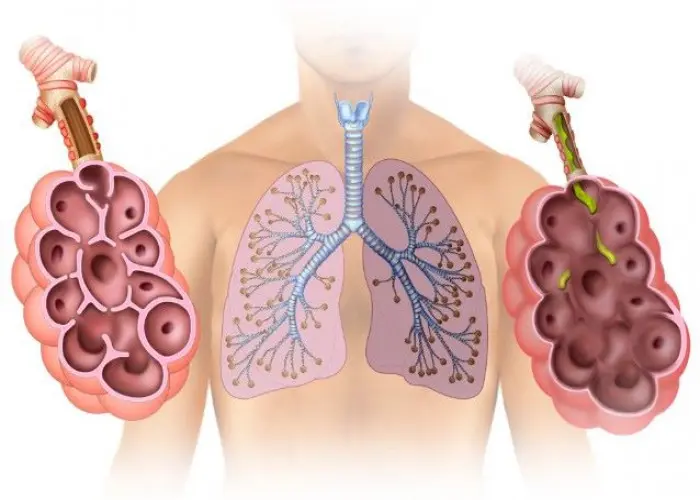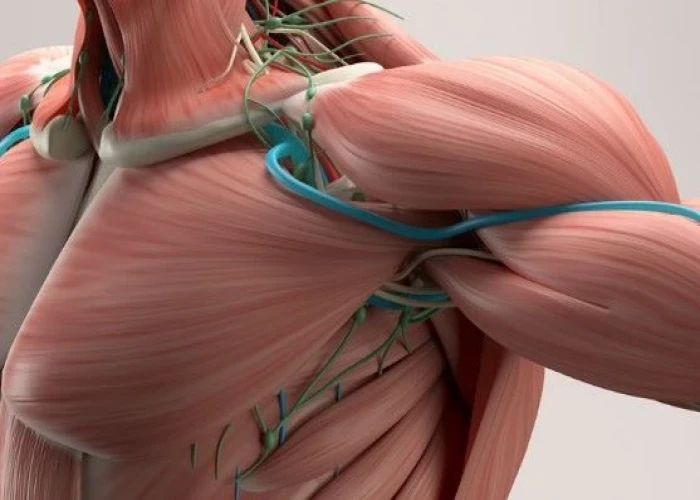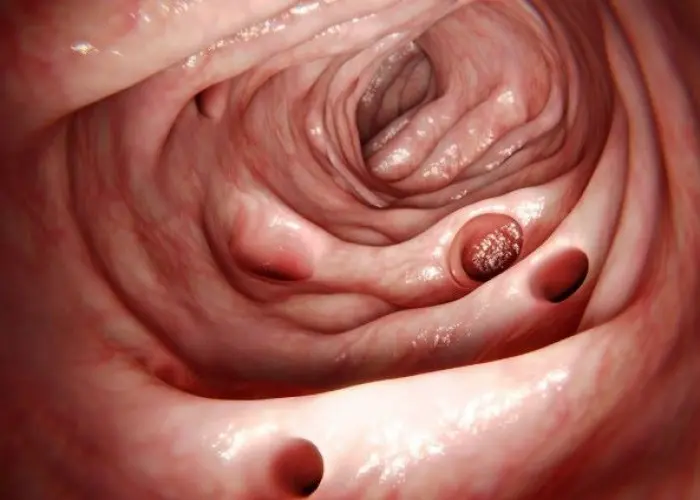 Welcome
Welcome
“May all be happy, may all be healed, may all be at peace and may no one ever suffer."
Mesothelioma

Mesothelioma is a rare and aggressive cancer that affects the mesothelial cells, which are the cells that line the protective membranes that surround many organs in the body, such as the lungs, heart, and abdomen. The most common type of mesothelioma is pleural mesothelioma, which affects the lining of the lungs.
Mesothelioma is most commonly caused by exposure to asbestos, a naturally occurring mineral that was widely used in the past for its insulating properties. When asbestos fibers are inhaled, they can become lodged in the lungs and over time, cause inflammation and scarring that can lead to mesothelioma.
Symptoms of mesothelioma may include chest pain, shortness of breath, fatigue, weight loss, coughing, and fluid buildup in the lungs or abdomen. These symptoms can be similar to those of other respiratory conditions, so a proper diagnosis requires imaging tests, such as X-rays, CT scans, and MRIs, as well as biopsies of affected tissues.
Treatment for mesothelioma depends on the stage of the cancer and the patient's overall health. Options may include surgery to remove affected tissues, radiation therapy, chemotherapy, or a combination of these treatments. Unfortunately, mesothelioma is often diagnosed at a late stage, when treatment options may be limited and the prognosis may be poor. However, early detection and prompt treatment can improve outcomes, so it is important for individuals who have been exposed to asbestos to seek regular medical check-ups and report any symptoms to their healthcare provider.
Research Papers
Disease Signs and Symptoms
- Chest pain
- Cough
- Shortness of breath (dyspnea)
- Tissue cancer or tumor
- Skin cancer
- Weight loss
- Swollen abdomen (Ascites)
- Nausea or vomiting
- Pericardial mesothelioma, which affects tissue that surrounds the heart, can cause signs and symptoms such as breathing difficulty and chest pains.
Disease Causes
Mesothelioma
In general, cancer begins when a series of changes (mutations) happens in a cell's DNA. The DNA contains the instructions that tell a cell what to do. The mutations tell the cell to grow and multiply out of control. The abnormal cells accumulate and form a tumor.
It isn't clear what causes the initial genetic mutations that lead to mesothelioma, though researchers have identified factors that may increase the risk. It's likely that cancers form because of an interaction between many factors, such as inherited conditions, your environment, your health conditions and your lifestyle choices.
Disease Prevents
Mesothelioma
Reducing your exposure to asbestos may lower your risk of mesothelioma.
Find out whether you work with asbestos
Most people with mesothelioma were exposed to the asbestos fibers at work. Workers who may encounter asbestos fibers include:
- Asbestos miners
- Electricians
- Plumbers
- Pipefitters
- Insulators
- Shipyard workers
- Demolition workers
- Brake mechanics
- Selected military personnel
- Home remodelers
Ask your employer whether you have a risk of asbestos exposure on the job.
Follow your employer's safety regulations
Follow all safety precautions in your workplace, such as wearing protective equipment. You may also be required to shower and change out of your work clothes before taking a lunch break or going home. Talk to your doctor about other precautions you can take to protect yourself from asbestos exposure.
Be safe around asbestos in your home
Older homes and buildings may contain asbestos. In many cases, it's more dangerous to remove the asbestos than it is to leave it intact. Breaking up asbestos may cause fibers to become airborne, where they can be inhaled. Consult experts trained to detect asbestos in your home. These experts may test the air in your home to determine whether the asbestos is a risk to your health. Don't attempt to remove asbestos from your home — hire a qualified expert.
Disease Treatments
What treatment you undergo for mesothelioma depends on your health and certain aspects of your cancer, such as its stage and location.
Unfortunately, mesothelioma often is an aggressive disease and for most people a cure isn't possible. Mesothelioma is usually diagnosed at an advanced stage — when it isn't possible to remove the cancer through an operation. Instead, your doctor may work to control your cancer to make you more comfortable.
Discuss treatment goals with your doctor. Some people want to do everything they can to treat their cancer, even if that means enduring side effects for a small chance of an improvement. Others prefer treatments that make them comfortable so that they can live their remaining time as symptom-free as possible.
Surgery
Surgeons work to remove mesothelioma when it's diagnosed at an early stage. In some cases this may cure the cancer.
Most of the time, it isn't possible to remove all of the cancer. In this situation, surgery may help to reduce the signs and symptoms caused by mesothelioma spreading in your body.
Surgical options may include:
- Surgery to decrease fluid buildup. Pleural mesothelioma may cause fluid to build up in your chest, causing difficulty breathing. Surgeons insert a tube or catheter into your chest to drain the fluid. Doctors may also inject medicine into your chest to prevent fluid from returning (pleurodesis).
- Surgery to remove the tissue around the lungs. Surgeons may remove the tissue lining the ribs and the lungs (pleurectomy). This procedure won't cure mesothelioma, but may relieve signs and symptoms.
- Surgery to remove a lung and the surrounding tissue. Removing the affected lung and the tissue that surrounds it may relieve signs and symptoms of pleural mesothelioma. If you'll be receiving radiation therapy to the chest after surgery, this procedure also allows doctors to use higher doses, since they won't need to worry about protecting your lung from damaging radiation.
- Surgery for peritoneal mesothelioma. Peritoneal mesothelioma is sometimes treated with surgery to remove as much of the cancer as possible. Chemotherapy may be used before or after surgery.
Chemotherapy
Chemotherapy uses chemicals to kill cancer cells. Systemic chemotherapy travels throughout the body and may shrink or slow the growth of a mesothelioma that can't be removed using surgery. Chemotherapy may also be used before surgery (neoadjuvant chemotherapy) to make an operation easier or after surgery (adjuvant chemotherapy) to reduce the chance that cancer will return.
Chemotherapy drugs may also be heated and administered directly into the abdominal cavity (intraperitoneal chemotherapy), in the case of peritoneal mesothelioma.
Radiation therapy
Radiation therapy focuses high-energy beams from sources such as X-rays and protons to a specific spot or spots on your body. Radiation may be used after surgery to kill any remaining cancer cells. It may also help reduce signs and symptoms of advanced cancer in situations where surgery isn't an option.
Other treatments
In certain situations, other treatments might be used to treat mesothelioma. Other treatments include:
- Immunotherapy. Immunotherapy uses your immune system to fight cancer. Your body's disease-fighting immune system may not attack your cancer because the cancer cells produce proteins that blind the immune system cells. Immunotherapy works by interfering with that process. This treatment might be an option if other treatments aren't working.
- Targeted therapy. Targeted therapy uses drugs that attack specific vulnerabilities in cancer cells. These drugs aren't commonly used for treating mesothelioma, but your doctor might recommend targeted therapy based on the results of tumor DNA testing.
Clinical trials
Clinical trials are studies of new mesothelioma treatment methods. People with mesothelioma may opt for a clinical trial for a chance to try new types of treatment. However, a cure isn't guaranteed. Carefully consider your treatment options and talk to your doctor about what clinical trials are open to you. Your participation in a clinical trial may help doctors better understand how to treat mesothelioma in the future.
Clinical trials are currently investigating a number of new approaches to mesothelioma treatment, including new targeted therapy drugs and new approaches to immunotherapy.
Treatment for other types of mesothelioma
Pericardial mesothelioma and mesothelioma of tunica vaginalis are very rare. Early-stage cancer may be removed through surgery. Doctors have yet to determine the best way to treat later-stage cancers, though. Your doctor may recommend other treatments to improve your quality of life.
Disease Diagnoses
Disease Allopathic Generics
Disease Ayurvedic Generics
Disease Homeopathic Generics
Disease yoga
Mesothelioma and Learn More about Diseases

Emphysema

Pseudocholinesterase deficiency

Cellulite

Amyloidosis

Peanut allergy

Liver disease

Diverticulitis

Galactorrhea
mesothelioma, মেসোথেলিওমা
To be happy, beautiful, healthy, wealthy, hale and long-lived stay with DM3S.
